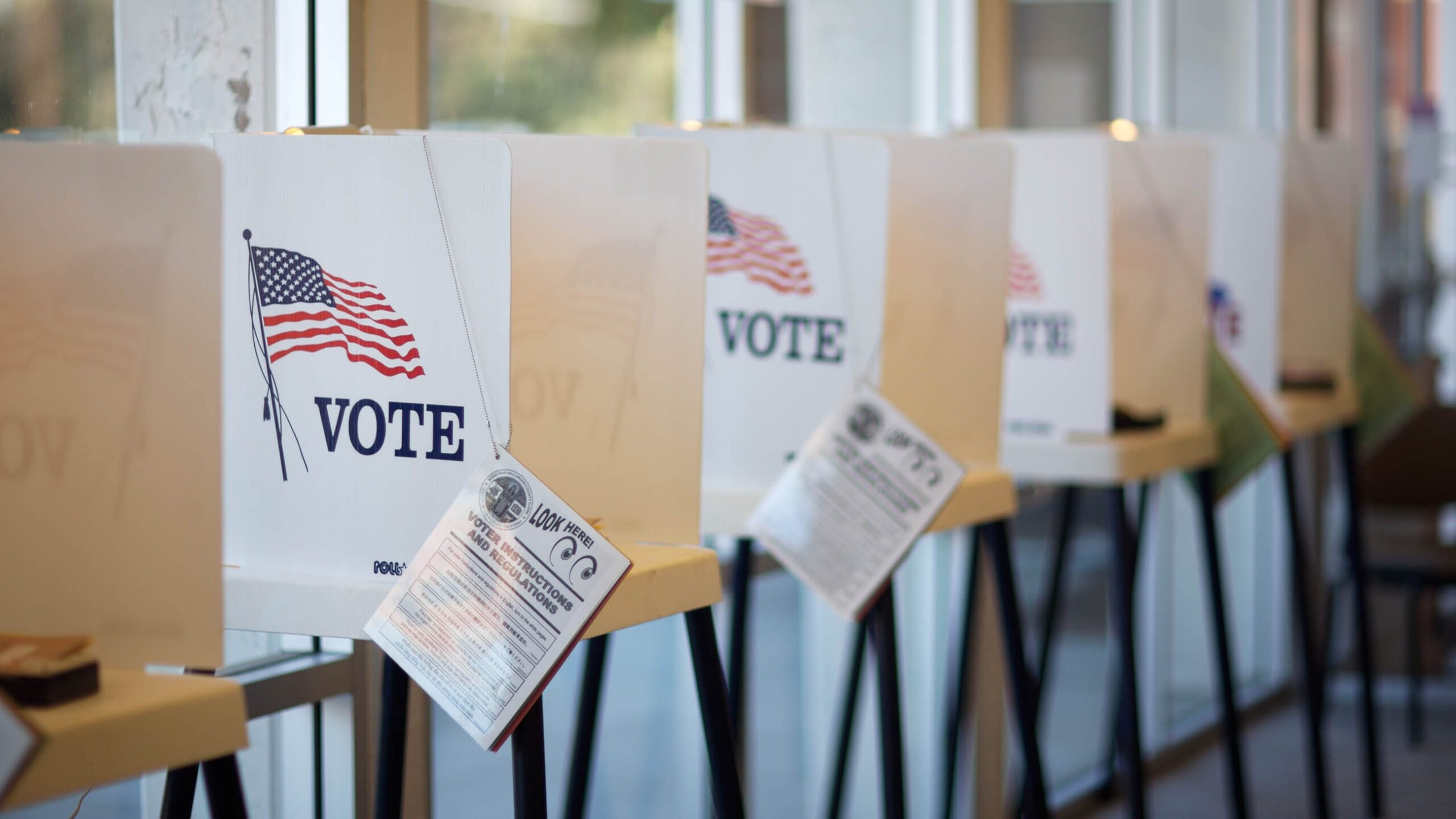California – As November passes and the inauguration and implementation of new candidates and policies rolls out, California and San Francisco citizens voted all across the political spectrum as they upheld some constitutional commitments yet refused to abolish others.
Historically, California and the greater Bay Area have swung in a left direction of politics. No presidential candidate has won the state since 1988, and since then, the popular vote margins have overwhelmingly increased voting blue.
In 1994, California voters proposed the initiative Prop 187 which would establish a state-run citizenship screening system and make healthcare, education, and other basic services impossible for undocumented immigrants to access. This proposition passed by over 2 million votes. Five years later, the California Legislative Analyst’s Office stated that the cost of the verification process would outweigh the benefits of the proposition and a revote would commence. It was overwhelmingly overturned by the increase of immigrants in the state, and is said to be the start of the decline of the California Republican party.
Since then, the state has consistently voted blue. However, in 2024, California aligned with the rest of the nation with local props and measures as national crime skyrocketed and prices increased. What does this mean for San Francisco and California at large? Where do we go from here?
List of key passed Props, Measures and Amendments:
- California Amendment 3
- California Measure 2
- California Proposition 4
- California Proposition 35
- California Proposition 36
List of key rejected Props, Measures and Amendments:
- California Proposition 5
- California Proposition 6
- California Proposition 32
- California Proposition 33
Yes:
Amendment 3: Since June 28, 2013, same sex marriage has been legal in California. However, it has been legal in San Francisco since as early as 2004. In 2008, California voters passed a statewide ban on same sex marriage on Proposition 8 which ingrained homophobic language in the state constitution and still existed even after the United States federally legalized same sex marriage in 2015. While Prop 8 had no impact because of the federal legalization, many lawmakers worried that in a Trump presidency if the 2015 law were to be overturned, California would be susceptible to a statewide ban due to the language written in the state constitution. Amendment 3 removes the homophobic language of Prop 8 from the state constitution further protecting the right to marry regardless of what happens on a national level. This amendment overwhelmingly passed.
Measure 2: Unlike many other states, California does not provide a permanent stream of funding for repairs and maintenance of public education facilities. Funding relies solely on state and local bonds, which are a type of way governments can borrow money and give it to public spending. Measure 2 would provide a 8.5 billion dollar bond for California’s public K-12 schools and 1.5 billion dollars for community colleges and their facilities. More of the money would go to less affluent districts and those with more English learners and foster youth. This passed with a 2 million vote margin.
Proposition 4: California has long been a state committed to climate protection and global warming prevention. Proposition 4 offers a 10 billion dollar debt bond dedicated to conservation and environmental projects with an intentional 1.9 billion dedicated towards drinking water improvements. 40% of this funding goes to low income communities and those most at risk of wildfires, sea-level rise, and costly droughts. Proposition 4 overwhelmingly passed.
Proposition 35: Over 14 million California residents optimize Medi-Cal, the state’s affordable health care system that is available regardless of citizenship. However, the state pays back providers at an incredibly low rate compared to those on regular health insurance, causing many providers to deny people on Medi-Cal the help they need. Prop 35 would permanently require the state to spend healthcare tax money on Medi-Cal. It is expected to generate 35 billion dollars for the program over the next four years. 67%of citizens voted “yes” on Prop 35.
Proposition 36: In 2014, voters passed Proposition 47 which in an attempt to prevent prison overcrowding, reclassified theft and drug crimes into misdemeanors. Since then, many have blamed the law for the rising crime numbers in many counties across California specifically following the pandemic. Prop 36 would reclassify these crimes to “treatment-mandated felonies.” Essentially, if people do not contest the charges against them, they have the option to complete drug rehabilitation instead of going to prison, but if they do not finish their program, they are sentenced. Misdemeanor charges are on average sentenced to one year of prison, whereas felonies can be up to 5 years. 68%of voters passed Prop 36.
No:
Proposition 5: Only able to pass with a 55%voter approval, Proposition 5 allows increased bonds and funding for public infrastructure and affordable housing. However, this borrowing through bonds would result in higher property taxes for California residents. Habitat For Humanity endorsed YES on this prop, but the California Taxpayer Association pushed for NO. It was rejected by 1.5 million votes.
Proposition 6: Section 6 of the California Constitution Declaration of Rights reads as follows: “Slavery is prohibited. Involuntary servitude is prohibited except to punish crime.” The California Reparations Task Force recommended amending this section as one of 14 key priorities for the state’s commitment to reparations. 40,000 of 90,000 incarcerated people in California conduct many laborious tasks such as: construction, firefighting and yard work. California’s legal minimum wage stands at 16 dollars an hour, however, these workers only make an average 74 cents per hour. Proposition 6 is an amendment to the section that would prohibit involuntary servitude for all people and would force the state to pay these inmates legal minimum wage. In 2022, the state estimated that this would cost the state 1.5 billion dollars annually, but the proposition suggests a volunteer credit program to reduce the cost. This proposition is opposed by the California Republican Party and the Howard Jarvis Taxpayers Association. Prop 6 was rejected by voters by 53%. This was a loss for all current, former and future incarcerated people.
Proposition 32: In 2022, California became the first state to mandate a $15 minimum wage, setting a precedent of a well paid working class. Proposition 32 would raise it to $17 for the remainder of 2024, and $18 in 2025. This is the state’s effort to adapt with the country’s shocking inflation. San Francisco’s minimum wage is already $18.50. California voters denied the proposition by just over 200,000 votes.
Proposition 33: San Francisco and Los Angeles already legally enforce a rent cap for landlords but historically California has never enforced a statewide law. Prop 33 would let all cities enforce a rent cap for all housing facilities including low income housing and single-family homes. Opposers of the proposition say with such strict rent control ordinances the California housing crisis will only escalate. These funders and voters won as the prop was voted NO by a margin of almost 3 million votes.
California looks on to protect its progressive policies from a Trump presidency with Governor Newsom rolling out bills and bonds to preserve natural resources and public policy. Although the state claims to uphold left leaning ideologies, this election produced all sorts of results that may or may not align with that. Can a state call itself progressive, yet not abolish legal slavery? Can a state that allocates so much funding to public institutions simultaneously increase the legal punishment for small crimes like theft? The California identity crisis aligns with the current national one which causes much uncertainty and doubt in the foundational values of the state.
Polarization and uncertainty is expected as the state anticipates the implementations of chosen legislation, but make sure to stay informed and aware of how these policies impact non-adjacent and local communities as well as you.







Hi my fawmily member! I wiish to ssay that this post iss awesome,
nioce written annd comee with approximately aall important
infos. I’d like to seee extra poszts ljke this .
6dagwu